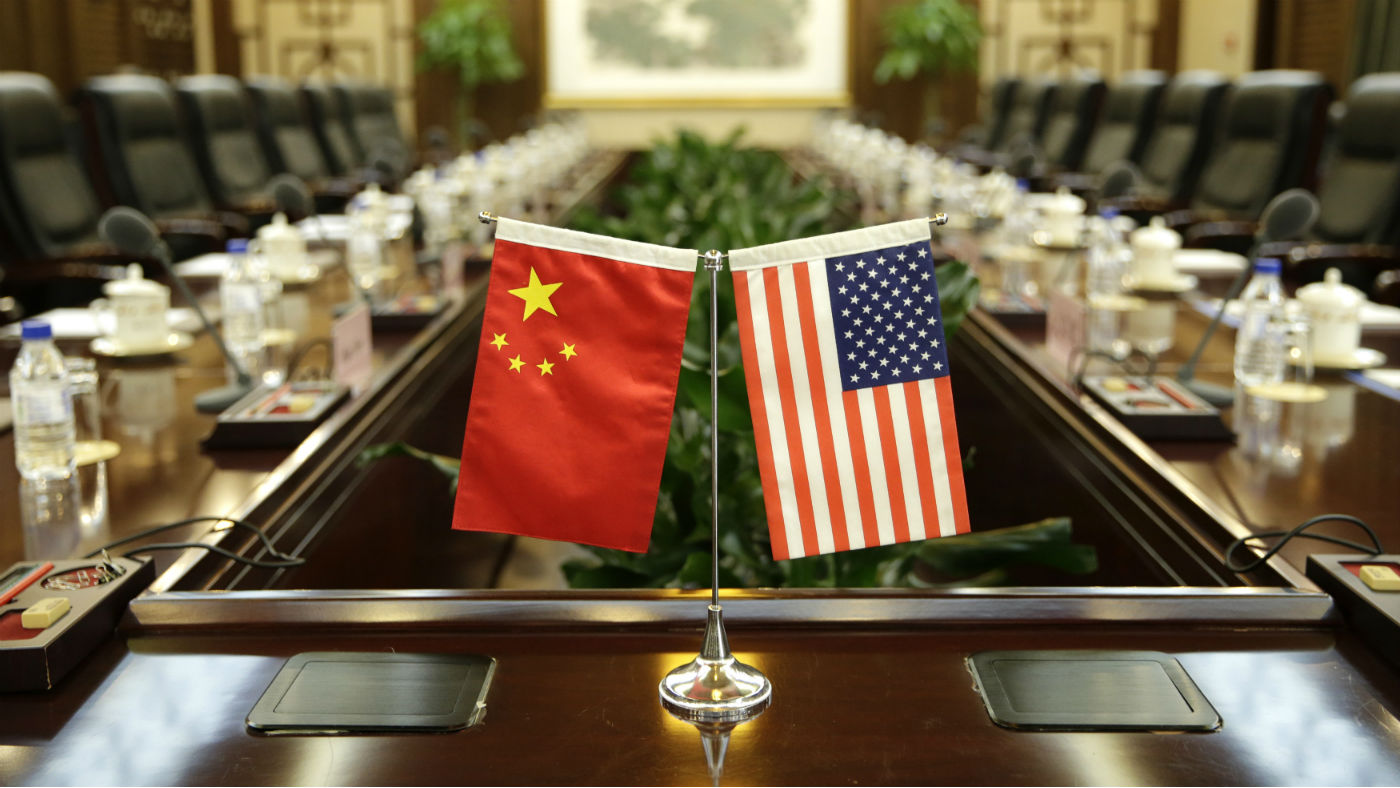China agrees to buy more US imports
Agreement sees world’s two biggest economies step back from all-out trade war

A free daily email with the biggest news stories of the day – and the best features from TheWeek.com
You are now subscribed
Your newsletter sign-up was successful
China has agreed to buy more US imports of goods and services, reducing the trade imbalance between the two countries and calming fears of a trade war between the world’s two biggest economies.
While Washington has stopped short of saying how much more China has agreed to buy, it says the move will “substantially reduce” its current $335bn annual trade deficit with Beijing, the BBC reports.
Donald trump has long criticised what he calls the theft of American intellectual property, particularly in technology and copyright, by Chinese firms.
The Week
Escape your echo chamber. Get the facts behind the news, plus analysis from multiple perspectives.

Sign up for The Week's Free Newsletters
From our morning news briefing to a weekly Good News Newsletter, get the best of The Week delivered directly to your inbox.
From our morning news briefing to a weekly Good News Newsletter, get the best of The Week delivered directly to your inbox.
Earlier this year his administration imposed huge tariffs on imports of steel and aluminium, and the president has threatened further tariffs on up to $150bn worth of Chinese goods.
China currently sells the US $462.bn worth of goods a year, far more than it buys, but has threatened to impose similar tariffs on US imports, among them aircraft, soybeans, cars, pork, wine, fruit and nuts, in a tit-for-tat escalation.
However, the two sides, which have been locked in negotiations for weeks, appear to have stepped back from a full-on trade war with the latest commitment.
Announcing details of the deal, Chinese state news agency Xinhua on Sunday declared the agreement as a “good example of win-win”, adding it would help the US reduce its trade deficit and allow China to raise the quality of its imports.
A free daily email with the biggest news stories of the day – and the best features from TheWeek.com
The statement concluded: “Both sides agreed to encourage two-way investment and to strive to create a fair, level playing field for competition.”
-
 ‘Restaurateurs have become millionaires’
‘Restaurateurs have become millionaires’Instant Opinion Opinion, comment and editorials of the day
-
 Earth is rapidly approaching a ‘hothouse’ trajectory of warming
Earth is rapidly approaching a ‘hothouse’ trajectory of warmingThe explainer It may become impossible to fix
-
 Health insurance: Premiums soar as ACA subsidies end
Health insurance: Premiums soar as ACA subsidies endFeature 1.4 million people have dropped coverage
-
 Currencies: Why Trump wants a weak dollar
Currencies: Why Trump wants a weak dollarFeature The dollar has fallen 12% since Trump took office
-
 TikTok: New owners, same risks
TikTok: New owners, same risksFeature What are Larry Ellison’s plans for TikTok US?
-
 Trump wants a weaker dollar, but economists aren’t so sure
Trump wants a weaker dollar, but economists aren’t so sureTalking Points A weaker dollar can make imports more expensive but also boost gold
-
 Leadership: A conspicuous silence from CEOs
Leadership: A conspicuous silence from CEOsFeature CEOs were more vocal during Trump’s first term
-
 The end for central bank independence?
The end for central bank independence?The Explainer Trump’s war on the US Federal Reserve comes at a moment of global weakening in central bank authority
-
 Can Trump make single-family homes affordable by banning big investors?
Can Trump make single-family homes affordable by banning big investors?Talking Points Wall Street takes the blame
-
 Phish food for thought: Ben & Jerry’s political turmoil
Phish food for thought: Ben & Jerry’s political turmoilIn the Spotlight War of words over brand activism threatens to ‘overshadow’ the big ice cream deal
-
 What a rising gold price says about the global economy
What a rising gold price says about the global economyThe Explainer Institutions, central banks and speculators drive record surge amid ‘loss of trust’ in bond markets and US dollar